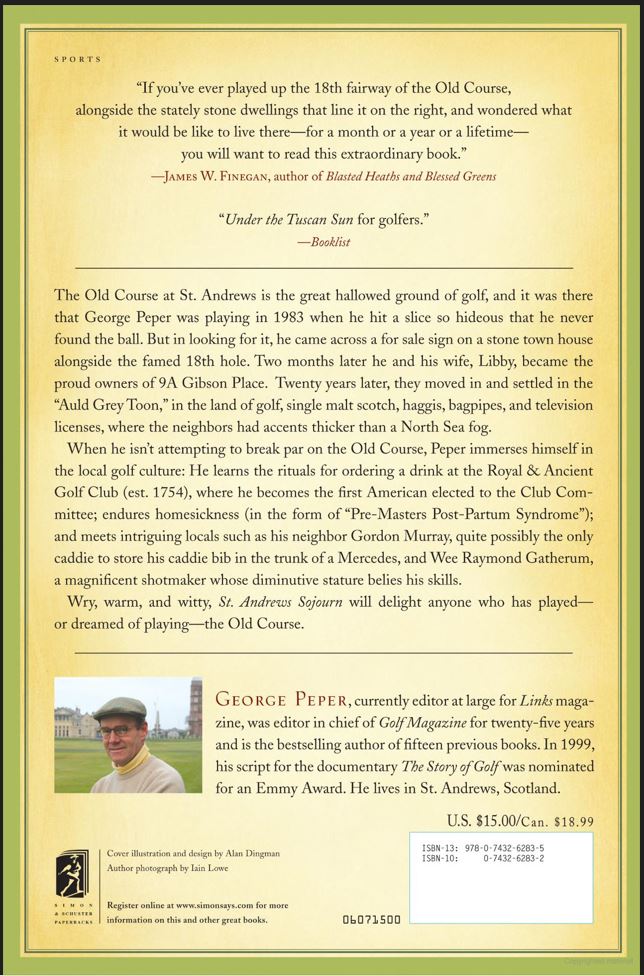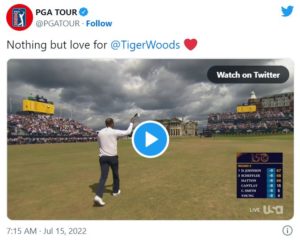By John Barba, My Golf Spy
Ben Hogan has closed. And this time it looks as though it’s for good.
The Fort Worth-based descendant of the original company Ben Hogan himself started in 1953 let its entire workforce go last Friday and has ceased operations.
“I don’t know if it’s permanent,” Hogan CEO Scott White tells MyGolfSpy, “but I suspect it is.”
This latest twist in the Hogan story certainly looks like the final one. And the irony is that it has absolutely nothing whatsoever to do with the performance of the Ben Hogan Golf Equipment Co.

BEN HOGAN IS CLOSING: WHY?
“It really boils down to the fact that our majority shareholder, ExWorks Capital of Chicago, filed for bankruptcy in March,” says White. “So we weren’t getting any funding at all.”
ExWorks specialized in high-risk-high-reward investments but its portfolio took a major hit in 2020 and 2021 due to COVID.
“They funneled a lot of money into other areas of their portfolio,” says White, “but by March, the whole thing came crashing down.”

White spent much of the past four months searching for new investors. That proved difficult because Hogan didn’t actually own the brand. Perry Ellis owns it and licensed the name to the Hogan company in order to sell equipment.
As a result, Ellis pulled the licensee agreement two weeks ago. Once that happened, Hogan’s fate was pretty much sealed.
“Without a license, you can’t sell anything branded ‘Ben Hogan’,” says White.

THE BUMPY HOGAN HISTORY
As mentioned, the Ben Hogan Co. dates back to 1953 when Hogan declared he was going to make the finest golf clubs in the world. After false starts, scrapped inventory that wasn’t up to standards and an investor buyout, Hogan sold his company to AMF in 1960.
In the mid-1980s, the Hogan company changed hands twice in less than three years and was sold again in the early ’90s before winding up as part of the Spalding Golf stable in 1998. Callaway acquired the Hogan brand, along with Top-Flite, out of bankruptcy in 2003. Callaway sold Hogan-branded equipment for five years before mothballing the brand in 2008.
In 2012, Callaway sold the Hogan brand name to Perry Ellis.

Two years later, former Hogan executive Terry Koehler announced plans to resurrect Hogan-branded equipment as a licensee. That endeavor ended in bankruptcy by early 2017. Within a few months, however, Hogan came back again, this time as a direct-to-consumer brand.
According to White, this latest Hogan iteration had been growing annually at a 50-percent clip ever since and enjoyed its best year ever in 2021. The company still relied on ExWorks for investments in R&D, marketing and inventory.
“We had seasonality to deal with,” says White. “Our wallets would be fat and happy during the summer but, in the fall and winter when we needed to buy components for the following season, we’d need funding to get us through that period.”
Because of ExWorks’s struggles, Hogan hadn’t seen any of that money since 2020.

NO WHITE KNIGHTS
ExWorks, along with White, did try to find a new owner for Hogan to no avail. Since Hogan was a licensee and didn’t own the brand name, there was little to interest a new investor. That problem only became worse over the past two weeks once Perry Ellis pulled the license.
“Yeah, it’s their (Perry Ellis’) ball and bat,” says White. “They’ve done a nice job on the apparel side but the apparel world and golf equipment world are very different. They’ll have to figure out what, if anything, they want to do with the brand on the equipment side.”
White does insist if ExWorks had remained solvent, Hogan would still be going strong.
“If they had been able to invest at the levels they had planned, we’d be two or three times the size. But we were always on a really tight budget. We weren’t able to get Tour players like we wanted. We weren’t able to invest in golf balls and in other initiatives we had in our strategic plan.”

IS HOGAN DOWN FOR THE COUNT?
Is Ben Hogan closing down for good?
It would appear so.
For a company that has gotten up off the mat more times than Rocky Balboa, this has the look and feel of a TKO. As it stands now, Perry Ellis still owns the brand name. But, as we’ve seen twice now, it’s very difficult to make a go of it in the golf equipment game as a licensee.
“It would have to be a group of investors who see the value of the Ben Hogan brand in premium golf equipment,” says White. “They’d have to be ready to invest and ready to be patient. And those are two words that don’t usually go together in the same sentence.”

For many consumers, the news of Hogan’s demise will most likely register barely above the “who cares?” level on the Big Deal Meter. It was, after all, a small direct-to-consumer brand and hadn’t been a major factor in market share for nearly 20 years.
But it’s a sad coincidence that news of the Hogan shutdown came 25 years to the day that Mr. Hogan himself passed away on July 25, 1997, at the age of 84.
And for golfers who do care about the history of the game, the existence of the Ben Hogan Company was a connection to the game’s roots and to its soul.

This golf nut, for one, is saddened by the news as the man, the company, and the clubs are yet another important part of my golfing life which has now faded into the background. Hogan’s early struggles as a child and then as a young pro, followed by the tragic auto accident just when he reached the pinnacle of his profession are seared into my memory. I’ve read every book written about this great man, and for me, he embodies a golfer’s never-ending search for The Secret. He even sold a story to LIFE Magazine about having discovered The Secret, making Hogan – at least for me – the ultimate golf nut.
For added perspective about the history of the Ben Hogan Golf Equipment Company, click HERE to read a story written in 2018.
And for a special treat, check out this wonderful video of the Ben Hogan Golf Equipment commercials from the early nineties.
The Head Nut
#0001

 Bruce Chalas has felt the spirit of golf for more than 50 years — or at least he thought he had. Then he met Jordan Thomas and a host of other adaptive golfers.
Bruce Chalas has felt the spirit of golf for more than 50 years — or at least he thought he had. Then he met Jordan Thomas and a host of other adaptive golfers.



